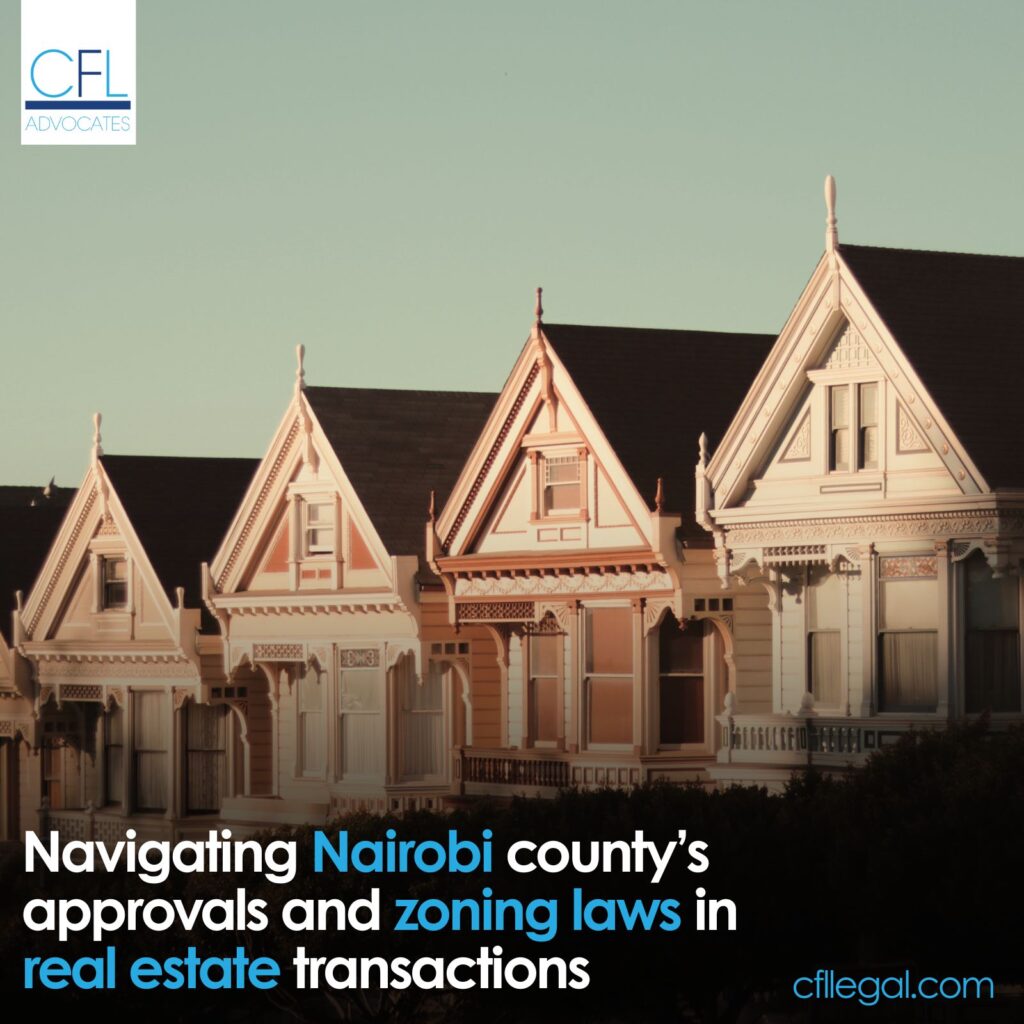
Real estate in Nairobi is one of the fastest-growing sectors in the country, attracting investors, developers and homeowners alike. But beyond comparing prices and acquiring a title deed, there is an equally important aspect of property ownership on county approvals and zoning laws that is often overlooked. For buyers, sellers, developers and lenders, understanding approvals and zoning is not optional as it determines whether a project can proceed, how much value a site can deliver and whether a deal carries hidden legal or enforcement risk.
Why zoning and approvals matter in Nairobi deals
Zoning and planning approvals control what you can build or do on land (e.g. use it for residential or commercial purposes), how you build (setbacks, height, coverage) and whether a proposed change of use needs additional permission. Failing to confirm zoning or to obtain required permits can lead to stop-work orders, fines, forced demolition, loss of finance, or inability to obtain title transfers and occupancy certificates.
Zoning sets the rules for land use and development in the following ways:
- Use – residential, commercial or mixed use
- Density – how many units can fit on a piece of land
- Height limits – number of floors allowed per development
- Setbacks – spacing from road and neighbours
- Special protections – riparian land, forests, heritage area
The legal & institutional framework
- National law: The Physical and Land Use Planning Act (No. 13 of 2019) modernised planning law in Kenya and requires preparation of national, county and local physical and land-use development plans that inform zoning and development control.
- County role: The Nairobi City County is mandated to prepare and implement Local Physical and Land Use Development Plans, exercise development control and issue construction and change-of-use approvals through its county planning department and the designated online portals. This mandate was recently affirmed by the Court of Appeal in Claire Kubochi Anami & Others v County Executive Committee Member, Built Environment and Urban Planning, Nairobi City County & 20 Others (Civil Appeal No. E160 of 2025), where the Court directed the County Government to, within six (6) months from 19th September, 2025, finalise, adopt through the County Assembly and gazette the relevant local physical and land use development and zoning plans pursuant to Section 46 of the Physical and Land Use Planning Act, 2019 (PLUPA) or alternatively, to adopt a Nairobi City Development Control Policy (or an equivalent development control code) applicable to the entire city.
Practical tips for buyers and developers
- Engage a registered physical planner, architect or surveyor to assist with zoning and approval processes.
- Confirm whether the land requires change of user before committing to a development project.
- In large-scale projects, ensure compliance with environmental and infrastructural requirements.
- Work closely with an advocate to verify that all approvals and consents are in place before registration.
Conclusion
Nairobi’s planning and zoning framework is designed to promote sustainable urban growth while safeguarding public interests and infrastructure integrity. For purchasers and developers, the key to navigating Nairobi County approvals and zoning laws is early and thorough due diligence, use of the county e-services, engagement with experienced professionals and drafting sale and development contracts that allocate compliance risk clearly. When done right, understanding zoning is a value-creating step while when ignored it is a liability that can derail projects and deals.
Should you require any further information, do contact us at info@cfllegal.com.


